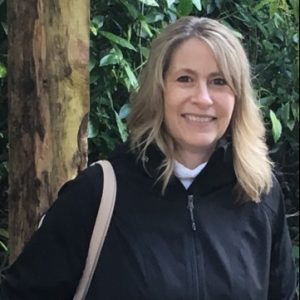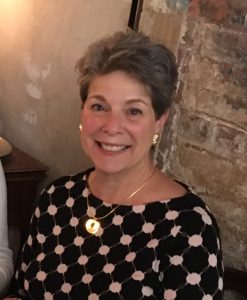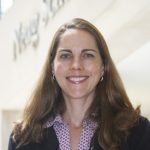For Denée Jackson (HESA ‘19), pursuing a master’s degree in higher education and student affairs was a natural choice. As an undergraduate student at UConn, she was deeply involved in campus organizations such as the African American Cultural Center and her sorority. This involvement led her to first an internship and then, upon graduation, a staff position in the Office of Fraternity & Sorority Life. The opportunity to work with college-age students, says Jackson, is one she cherishes.
“Universities are where magic happens,” says Jackson. “Students are figuring out who they are, how they want to change their world, what they want to do with their little slice of the universe; it’s really cool to be a part of that.”
In the university setting and outside of it, Jackson is dedicated to pursuing equity and uplifting the most marginalized populations. One challenging aspect while she’s in school full-time is balancing her studies with her desire to do community organizing and other activist work. “I’ve had to put some of that on hold for now, at least outside of UConn,” says Jackson. “But I’m always trying to educate myself and stay up to date on social issues.”
One of Jackson’s most rewarding experiences as a HESA student was her practicum last fall with ScHOLA2RS House, which is a learning community for Black men on campus. The HESA practicum program gives HESA students the opportunity to gain experience with effective facilitation and the design of intentional learning environments. For Denée’s fall 2018 practicum she mentored a group of students in ScHOLA2RS House, connecting with them regularly to make sure they had the resources they needed. A highlight, says Jackson, was going with her students to the annual conference of the Congressional Black Caucus in Washington, D.C. She enjoyed the practicum so much that she’s stayed connected: for spring break this semester she will be joining ScHOLA2RS House for a study abroad week in Brazil.
Through Jackson’s successes as a student, life has not always been easy. Her mother, who she describes as her “biggest cheerleader and advocate,” passed away in November of 2018. “It’s going to be a challenge going into this next semester without her,” says Jackson. “But I have my brother and my dad, I have my friends.” The HESA community has been there for her, too. “Faculty, staff, my supervisors, my cohort,” she says. “They helped ground me and remember that there are bigger things beyond
grades, beyond HESA. They’ve been really supportive.”
Jackson’s current goal for her upcoming final semester (and beyond) is balance. “I’m working on looking at my life and my well-being holistically,” she says. “I’m trying to feed my soul on all levels. Cooking, going to the gym, doing yoga, meditating, travel: it can all seem like a stressor when I’m busy, but then when I do it, I find it helps so much. It becomes a pillar.”
As a HESA student, Jackson likes being able to design her experience to suit her goals. Many students move directly into their careers after completing a HESA master’s program, but Jackson is pursuing a different path: she plans to begin a doctoral program after graduation.
“There’s a path that’s sometimes considered to be ‘typical’ student affairs, but if your interests don’t align with that, it’s okay,” she says. “There are lots of ways to pursue what you’re interested in, and people will support you along the way.”



